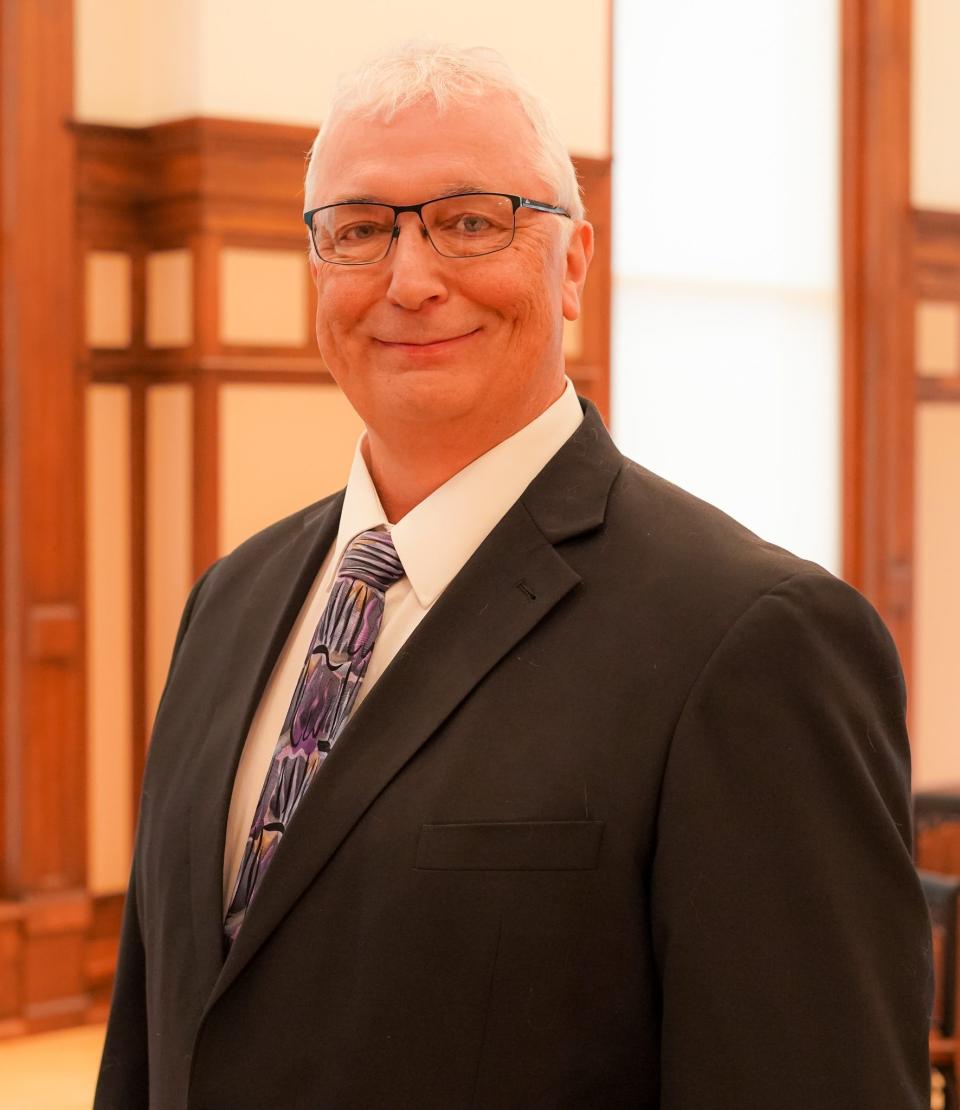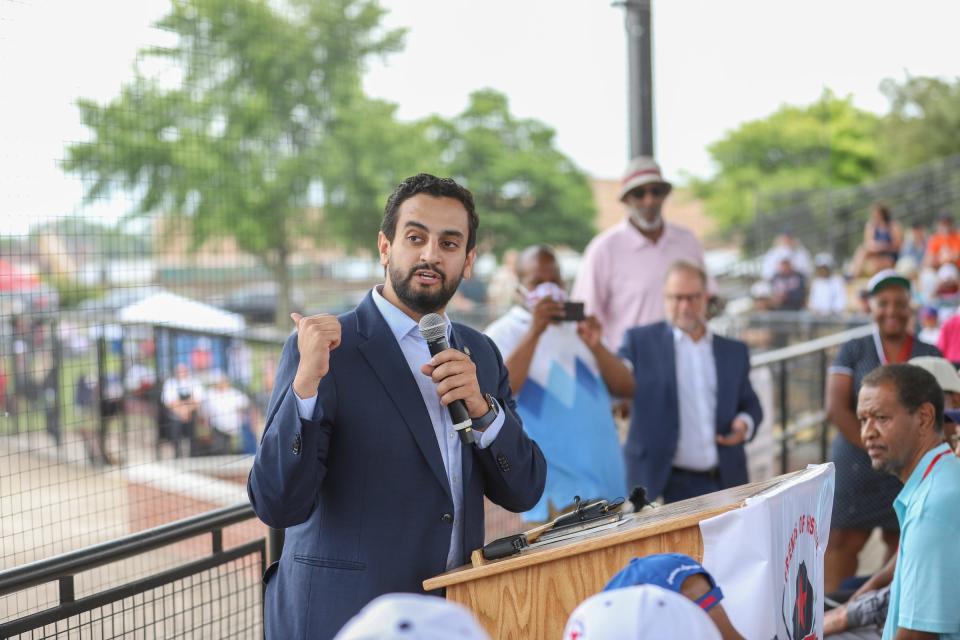Group aims to repeal key piece of Michigan Democrats' clean energy package

Michigan's 100% clean energy goal faces a potentially imperiling challenge from a petition that would repeal a new law giving state regulators the authority to decide where to locate large wind and solar projects.
An initiative petition from a group called Citizens for Local Choice would undo a part of the new law preempting local policies that are more stringent than the state's zoning requirements for constructing clean energy and storage facilities.
Last week, Citizens for Local Choice cleared a key hurdle when the state's elections panel approved a summary of its petition as well as the form for collecting voters' signatures.
In the final weeks of the 2023 legislative session, Democratic lawmakers approved wide-ranging legislation outlining clean energy goals.
Gov. Gretchen Whitmer signed the package last November, creating new clean and renewable energy generation requirements, an office designed to assist workers with the transition to the clean energy economy and — perhaps most contentiously — the authority for state regulators to override local authorities that deny applications to construct clean energy facilities such as solar farms and wind turbines.
Lenawee County Commissioner Kevon Martis, part of Citizens for Local Choice's leadership, said the group isn't anti-clean energy, but echoed concerns previously voiced by Republican lawmakers about stripping away local control over siting decisions for wind and solar projects.

Local governments can maintain a level of control in the zoning process if they first pass a so-called "compatible renewable energy ordinance" consistent with state zoning requirements. Martis described the new law as only giving local governments a say if they agree to host a facility in the first place.
Those who support giving the Michigan Public Service Commission — a state body made up of the governor's appointees — the authority to approve certificates to construct solar farms and wind turbines, say it will spur the creation of renewable energy facilities needed to achieve Michigan’s new clean energy goals.
Michigan’s new energy laws set a 2040 goal for achieving 100% clean energy generation, with 60% of that energy required to be from renewable energy sources like wind and solar by 2035.
State Rep. Abraham Aiyash, D-Hamtramck, who introduced the wind and solar siting bill targeted for repeal by Citizens for Local Choice, said removing his law would derail the state's new clean energy plan.
"There's no conceivable way to reach our clean energy goals without a streamlined process for wind and solar projects," he said, accusing some opponents of deceiving Michigan residents by claiming his bill would allow the state to forcibly seize private property. "In fact, our legislation outlines very clearly that eminent domain will never be used," Aiyash said. Solar and wind projects only happen if landowners voluntarily lease or sell their property, he added.

A coalition of advanced clean energy business groups has also come out in opposition to the Citizens for Local Choice initiative petition along with the Michigan League of Conservation Voters, an environmental advocacy group that created the ballot committee Our Land Our Rights to oppose the effort.
Proponents of Michigan Democrats' clean energy plan see it as a national model now under threat. "Michigan is leading the nation with its 100% clean electricity standard and this ballot measure takes the state backwards," said Nick Dodge, communications director for the league.
What happens next?
Initiative petitions — also known as voter-initiated legislation — that collect enough voter signatures first go to the state Legislature for consideration. Lawmakers can give their approval and circumvent the governor's veto. Or they can reject it and propose an alternative measure, putting both proposals to a statewide vote at the next general election. If state lawmakers take no action, the initiative petition goes straight to the ballot.
It is unlikely the Democratically-controlled Legislature would repeal a piece of the clean energy package it just passed. If organizers behind the Citizens for Local Choice initiative petition want a spot on the Nov. 5 ballot, they must collect and file with the Secretary of State's Office at least 356,958 valid voter signatures by May 29.
The tight timeline to gather enough valid signatures is a concern, Martis said.
Unless lawmakers or voters approve the Citizens for Local Choice petition initiative, the solar and wind siting legislation will take effect Nov. 29, 2024.
Contact Clara Hendrickson at [email protected] or 313-296-5743. Follow her on X, previously called Twitter, @clarajanehen. Contact Arpan Lobo: [email protected]. Follow him on X (Twitter) @arpanlobo.
This article originally appeared on Detroit Free Press: Democrats' clean energy law faces petition challenge
Solve the daily Crossword

